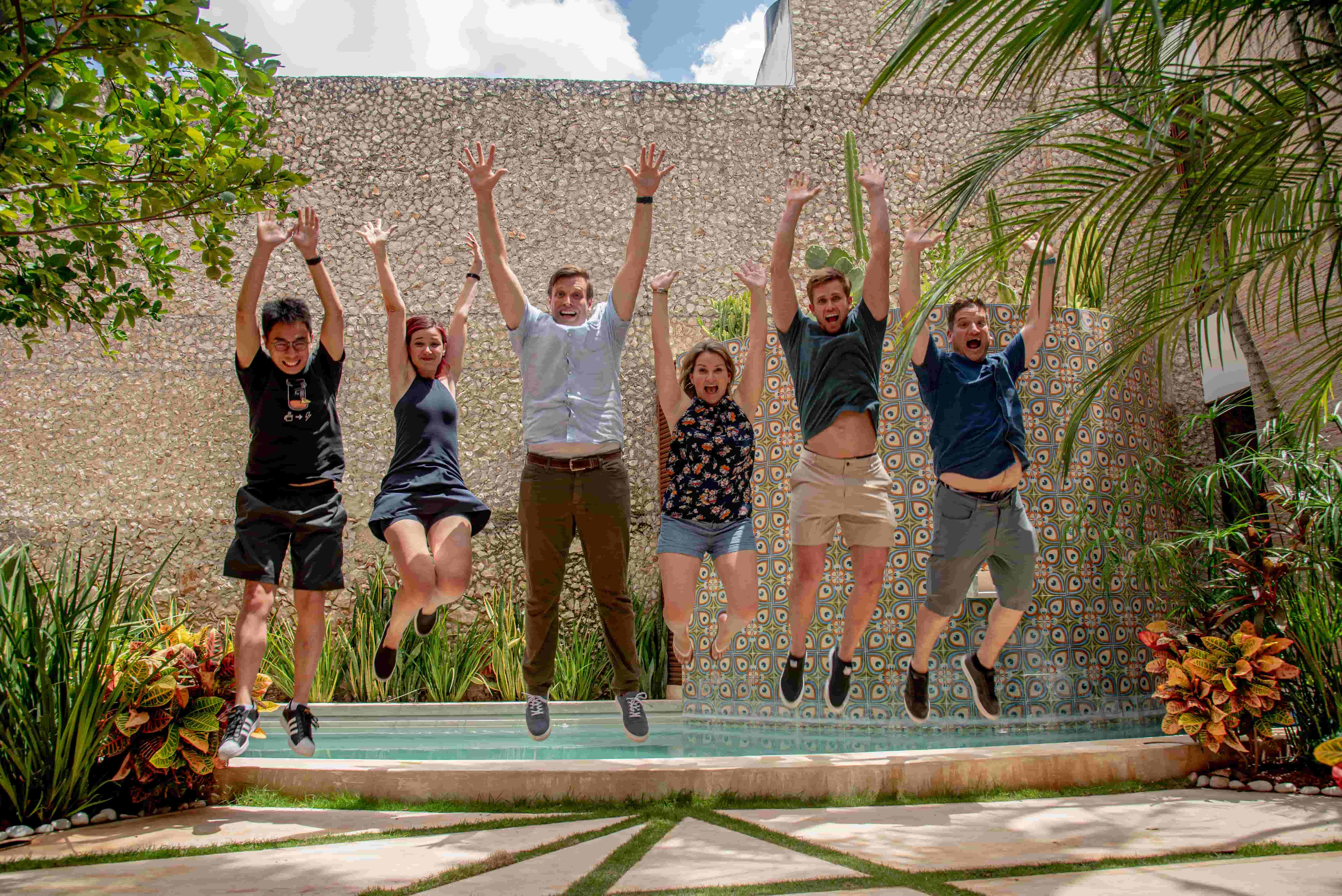Remote interviews are becoming a more popular way of interviewing candidates. Remote companies save time and money on travel expenses and determine if the candidate is a good fit for your team.
Remote interviews are usually done by video conferencing, over the phone, or via Zoom, with the interviewer sitting at their desk and the candidate sitting in their living room or office.
Remote interviews have many benefits for both employers and remote workers. Employers get to evaluate candidates based on who they are and what they look like without worrying about geographical location.
What is a Remote Interview?
A remote interview is a type of interview where the candidate and interviewer are not in the same location. Remote interviews can be done using various communication technologies, including Skype, Google Hangouts, Zoom, or phone.
Remote interviews are becoming more common because they offer employers several benefits. They allow companies to hire candidates who live in areas where there is a lack of qualified candidates. They also enable companies to hire candidates all over the world.
Tips to Ace A Remote Job Interview
In a remote interview, the interviewer and the interviewee are not in the same physical location; thus, you can succeed only if you possess the required skills to land a remote job.
The following are some tips for remote workers to nail the remote job interview.
- Be sure to have a good internet connection to communicate with your interviewer without any issues.
- Make sure that you’re comfortable with your surroundings – if it’s too noisy or bright where you are, it’ll affect how you sound on the phone.
- Prepare before the interview so that you know what to expect. Dress appropriately and be ready to answer questions about yourself and your work experience.
- Do your research on the company, its culture, and its values beforehand to understand its company culture and values better when you speak with them.
- Make sure to have your resume or CV handy during the interview so they can see it before deciding whether or not to hire you.
- Answer any questions about yourself upfront before they ask them because this will help them get an idea of who you are as an individual.
Top Questions Candidates Should Ask During A Remote Interview
Remote interviews are becoming more popular as companies are looking for ways to reduce costs and hire people who live in remote areas or timezones and don’t want to relocate.
If you’re a candidate, it’s important that you ask the right questions during your next remote interview, as it is an important part of finding the right remote job. Here are some questions that all candidates should ask during their next remote interview:
1. What is the interview process like?
It’s a good idea to ask first what the interview process is, especially if there are multiple stages of interviews before getting hired. This will help you become more prepared through the process, avoid any mistakes while applying for the remote job, and indicate to your interviewer how ready you are for those stages if any.
2. How do you work remotely?
The nature of your work, the applications used to monitor workflow, and many other systems might be different for your work when in the office versus when working remotely. Make sure to ask about the nature of your work when working remotely and what systems you need to adapt to.

3. How many leaves do you grant per year while working remotely?
Company policy might change the amount of leave you can have when working remotely versus when reporting on site. Clear this up with your employer, noting the different kinds of leave and whether or not working remotely can affect their policy.
4. What would be the timeline of the interview process?
This question ties in with the first question of how the interview process would be. Ask what the dates would be between the process and when you would be informed if you passed the next stage so that you can schedule accordingly and prepare accordingly for the process.
5. What is the expected time zone your team works in?
Depending on the company, you might have to interact with a team that lives worldwide and in different timezones. Ask the timezone that the team you would potentially be working with works on, and make sure that you can meet with them and work with them in that timezone.

6. How do this job’s first 30, 60, and 90 days look like?
This question gives you a rough idea of how you would progress and adjust within your work role. Would you be given training for your work? Will the company have an upcoming big project in the future, and are you more likely to work overtime in the next 30, 60 and 90 days? This question would answer those supplemental questions, and help you succeed at the remote role.
7. Is this role remote, hybrid or in-person?
Clarify if remote work means you can stay remote forever or if there are plans for employees to return to the office in the next few months. Depending on the answer, consider if the job is something you would want and could adjust to. It is essential to understand if the role is fully remote or hybrid.
8. What growth options are available in this role after a year or two?
This question relates more to training and, more importantly, promotions. Does the company frequently promote employees? Are you given enough training for this promotion and your subsequent role expansion? Ensure that the company provides enough opportunities to its employees for growth.
9. How would you describe the remote work culture?
A dramatic change in work dynamics would be in the culture of office work versus remote work. Obviously, you won’t be able to see or access your coworkers as often, and this would result in a change in culture. Ask about the current culture in the company, and how remote work has affected it. Then decide if that culture is the right fit for you.
10. How does the team communicate remotely?
Remote work communication can either be email or message-heavy (or asynchronous) or meetings-heavy (or synchronous). Whichever you prefer, make sure to ask about it, then prepare to adapt to that communication system to be more effective in your work and talking to your team.

11. What are the day-to-day responsibilities of the role?
This basic question should be asked for any role, not just a remote job. You should have at least some understanding of what to expect in working for a remote company from day to day.
12. What remote tools do you use to collaborate?
From communication channels like Slack to scheduling apps like GanttPro, and collaboration apps like Miro, there are many applications that you can use for remote work to make it easier to collaborate and communicate with the team. Ask the interviewer what remote working tools are being used so that you can more easily adjust to the role by learning more about these applications and how they work.

13. How do you provide feedback to remote employees?
Feedback is critical to a company as it is a way to gauge employee performance and determine who is underperforming. Ask how this feedback is obtained and provided, so you won’t be unprepared for your job.
14. What are the benefits provided to remote employees?
Again, this is another question that should be asked in any job. However, there might be some changes to the benefits that remote workers receive depending on the company you are working for. Clear this up as soon as possible with your remote company.
15. Does the company hold team meetups?
Due to the remote work policy, as said before, the culture and dynamic of the company and the team might be different than with in-office teams. The company might hold separate team meetups to ensure that teams can still interact with each other, even if it’s not regularly.

16. What is your remote work policy?
Make sure to clear up the specifics of the company’s remote work policy so that you know what your setup would be and if it’s a permanent or only a temporary arrangement.
17. How do you help your team work from home?
Companies usually give remote workers adequate work-from-home tools and devices to help them work remotely. There might be some other benefits the company provides; ask about them with your interviewer.
18. How does the company focus on remote team-building?
Remote companies alleviate the team dynamic and culture problem through various activities, including virtual remote team-building. Ask the company about these activities and how they help the team work together more effectively.
19. What are the company’s top goals for the future?
Understanding the company’s projects and plans and where they’re headed might give you more information about how you want to proceed with your future and whether or not you see yourself staying with the company for a long time.
20. How do you overcome challenges regarding remote work?
As said before, there are many challenges that remote work brings to the table, from collaboration and communication problems to different timezones to struggles with devices and more. Ask the company how they plan to overcome these challenges.
21. What can I expect the day-to-day to look like in this role?
Make sure to ask about the day-to-day responsibilities of your role so you have an understanding of the job at hand and so that you are always prepared for everything thrown at you.
22. What are the most challenging aspects of this remote job?
Asking the most challenging part of the job can help you prepare for the role you will take in the company. You can start planning on how to work around that challenge and be a more effective worker.
23. How would you describe the remote work environment in the company?
Again, this question has more to do with worker culture, dynamics, and how they integrate and collaborate. It’s an important question to ask so that you can start adapting to that environment, too.

24. How much of the team works remotely?
Ask this question so that you can schedule around and collaborate better with those who work remotely and those who don’t.
25. Does the company provide remote employees with a remote work setup?
Depending on the company, they might offer remote employees a setup (laptop, mouse, etc.) to work remotely. Make sure to take this benefit if they provide it so that you can fully utilize the company’s benefits.
How to Nail A Remote Job Interview?
Asking these questions will ensure that you are adequately prepared for the remote interview, as well as the role you’re about to take and that you will be able to integrate well with the team you’re going to work with (whether they work remotely or on-site).
Remember to be fully informed about the company and its plans so that you can plan your future as a company member. When it comes to a remote job interview, preparation is vital. Prepping for a remote job interview can often feel overwhelming, but it is worth it.
While this will look different for every job, I hope these questions we discussed today will give you a starting point to work from. Also, go over these questions that remote workers usually ask when looking for a remote job.
Still searching for a remote job and are not sure where to look. DailyRemote is a remote job board with the latest jobs posted in software development, marketing, virtual assistant jobs, etc. Now go ahead, get that remote job!


